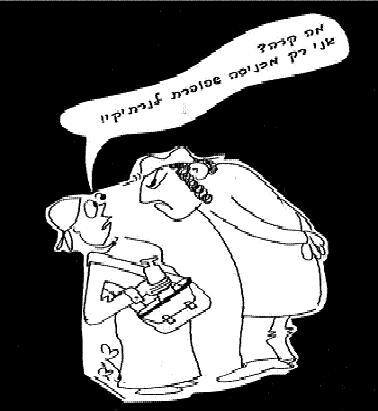
During her menstrual period a woman is considered impure (niddah) and is forbidden sexual contact with her husband.
The scholars asked: what is the rule if a woman has inserted a round tube into her vagina so that the menstrual blood flows through the tube and does not come into contact with her vaginal walls? What are the issues under debate? It is written in the Torah “And when a woman has a discharge of blood, the discharge shall be in her flesh, for seven days shall she be impure” (Leviticus 15:19). The sages customarily explicate verses and use them to rule Halacha; sometimes in doing so they completely uproot the meaning of the verse and sometimes they use a literal interpretation. It is this which is under debate. Should the term “in her flesh” be taken literally, that the menstrual blood must come into contact with her vaginal walls, or did the Torah not require such stringency? The Talmudic sages decided that the verse dealing with menstruation is to be taken literally. They interpreted the term “flesh” as exactly that: the menstrual blood coming from the woman’s womb must touch the vaginal walls, but if she has inserted a tube which serves as a separation between the blood and the vaginal walls, she is permitted to her husband.
(Babylonian Talmud, Tractate Niddah 21b)
